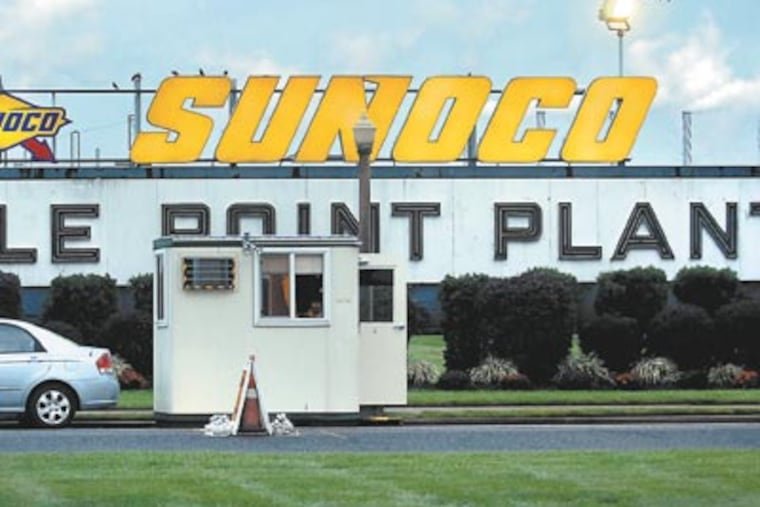Sunoco leaves a legacy of spin-offs in Philadelphia area
Some time by the close of business this week, a Texas pipeline company called Energy Transfer Partners L.P. will officially acquire Sunoco Inc., ending the Philadelphia oil company's storied 126-year history as an independent firm.

Some time by the close of business this week, a Texas pipeline company called Energy Transfer Partners L.P. will officially acquire Sunoco Inc., ending the Philadelphia oil company's storied 126-year history as an independent firm.
The departure of Sunoco's corporate headquarters means Philadelphia now will host 11 head offices of Fortune 500 companies. Only three of the companies are based in the city itself: Comcast Corp., Aramark Corp., and Crown Holdings Inc.
But the $5.3 billion Sunoco acquisition, which shareholders will vote on Thursday at a special meeting in Detroit, does not mean that the Sunoco name will disappear from Philadelphia.
Sunoco's retail business will maintain its headquarters here under the leadership of Robert W. Owens, who has headed the marketing unit for more than 10 years. It will oversee the sale of fuel and merchandise at 4,900 gas stations and convenience stores bearing Sunoco's brand.
Sunoco Logistics Partners L.P., the subsidiary that operates the company's pipeline, storage, and terminal network, also will keep its headquarters in Philadelphia, under the helm of Michael J. Hennigan, its president.
Sunoco Logistics, whose partnership units are traded separately on the New York Stock Exchange, will now be controlled by Energy Transfer Partners (ETP), a Dallas company whose primary business is moving and processing natural gas on the Gulf Coast. ETP's primary interest in acquiring Sunoco was to take over Sunoco's crude-oil and fuel pipelines.
Sunoco announced Tuesday that most shareholders would receive a combination of cash and partnership units in ETP.
With the disappearance of its stock, Sunoco's place in the Standard & Poor's 500 Index will be taken over by PetSmart Inc. after the markets close Thursday.
In the weeks leading up to the shareholders' vote, Sunoco also settled in state and federal courts several lawsuits over the merger.
In response to accusations that it had not received sufficient value for the company, Sunoco disclosed more details about how the deal came to pass. Sunoco and ETP also agreed to provide outplacement services for a year to any displaced Philadelphia-area employees.
The merger came about after Sunoco had sold or spun off its chemical-manufacturing, coke-manufacturing, and home-heating oil delivery businesses as the company pared down assets under then-chief executive Lynn L. Elsenhans. Last year, it announced it would exit the unprofitable refining business to concentrate on retail fuel sales and logistics.
The company got its start in 1886, when Joseph N. Pew and Edward O. Emerson, partners in Peoples Natural Gas Co. in Pittsburgh, moved into the northern Ohio oil fields. They formed Sun Oil Co.
Sun moved to the Philadelphia area in 1902, when it opened a refinery in Marcus Hook to process Texas crude. It grew into a 20th-century industrial giant, with shipyards in Chester, oil refineries in several states and Puerto Rico, and exploration teams opening up new petroleum fields in Venezuela and the North Sea.
The strands of Sunoco's DNA are found in many of its corporate and nonprofit offspring.
Glenmede Trust Co. was created by four children of Sun Oil founder Pew to serve as the corporate trustee of the Pew Memorial Trusts.
SunGard Data Systems Inc., a Fortune 500 company based in Wayne, was once a division of Sun Oil.
Suncor Energy Inc., the Canadian oil-sands pioneer, got its start as a Sunoco project. SunCoke Energy Inc., the metallurgical-coke producer based in Chicago, was a Sunoco unit.
And many of the former Sunoco chemical operations are now owned by Braskem America, the Philadelphia-headquartered branch of the Brazilian petrochemical giant.